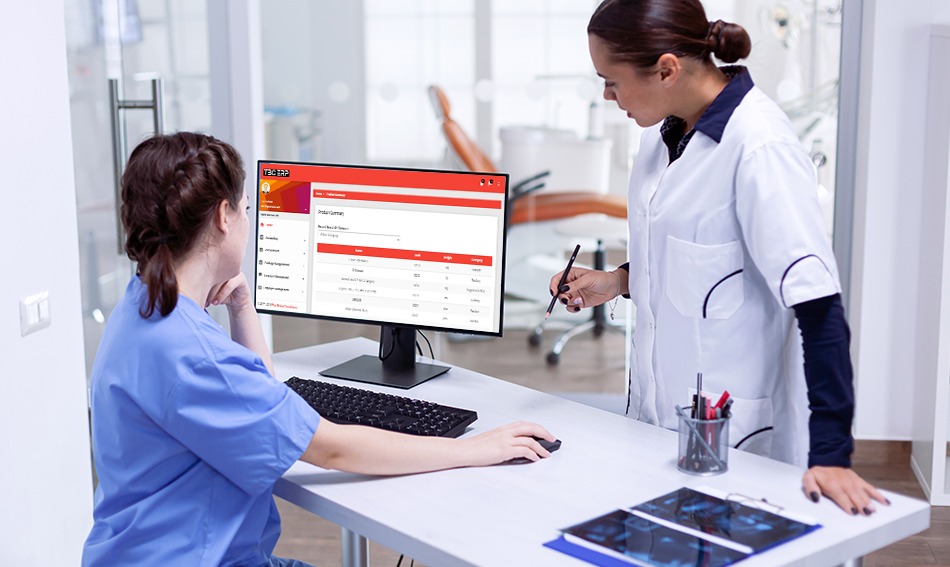
Discover How ERP Software For Healthcare Functions as the Mainstay of Medical Excellence
Having an efficient and automated workflow is the core principle of any successful business strategy. This principle is equally important to the healthcare sector. It is imperative for any institution to incorporate cutting-edge solutions to significantly enhance operational efficiency and to address numerous challenges. Healthcare professionals need the availability of a reliable system that oversees facilities, documentation, strategic planning, budgeting, staff, and patient interactions. Among the frequent challenges encountered by healthcare providers, there is a struggle to locate tools for patient and doctor management. Having it all sorted out helps to minimize paperwork, enhance effectiveness, and improve patient care, all while reducing the overall budget. Enterprise Resource Planning (ERP) provides the solution to all the above-mentioned problems. It streamlines core processes and offers a unified platform for managing finance, human resources, supply chain, and customer relations. Today organizations are moving towards the idea of integrating ERP software for healthcare systems.
Utilizing The Power Of ERP Software For Healthcare
The Enterprise Resource Planning (ERP) software has become particularly crucial for the healthcare sector. This software offers a solution, ensuring procurement and implementation of technology systems that meet the healthcare organization’s unique requirements. This underscores the growing importance of ERP in enhancing operational efficiency and overall performance within the healthcare domain. ERP is a module that consolidates an organization’s data, streamlines connections, and enables seamless data exchange among the various departments. This system is important in establishing connectivity for all ongoing business operations including interactions with the vendors and customers. ERP enhances collaboration, efficiency, and accuracy across a hospital. By allowing access to real-time data, it allows informed decision-making to improve productivity. ERP software for healthcare is known to play a crucial role in optimizing resource utilization according to evolving business needs.
How ERP Software Is Shaping the Healthcare Sector
ERP centralizes patient data, streamlines medical records, and facilitates seamless information flow across departments. ERP provides accurate billing and financial management for the healthcare sector. This helps to reduce errors and improve revenue cycles. It is a multifunctional system that has become important to healthcare systems in several different ways:
1. Better Patient Care
ERP promotes less paperwork and introduces error-free work at hospitals. This gives doctors more time with the patient, thereby improving patient care. ERP also consolidates and stores data that helps doctors to review patient data.
2. Improved Finances
ERP software for healthcare is known to improve its finances and make payments much more efficient. It manages not only the patient payments but also the hospital expenses and controls inventory. This system brings efficiency to the healthcare system and by reducing administrative errors and preventing unnecessary cost.
3. Strategic Planning
By keeping all the data in one centralized platform, the system can generate analytical reports which help the hospital administration to devise and implement strategies to improve workflow. By analyzing all the data, it provides the administration with a visual presentation of their organization’s performance and highlights areas for improvement.
4. Integration
The ERP system offers seamless integration of newer and better updates to evolve with the hospital’s demands and with the market as well. The software also offers convenience for all the various departments within a hospital to integrate and collaborate. This helps to improve the efficiency of work at the hospital.
What Are The Core Features OF An ERP Software
Let’s have a look at all the core features offered by ERP software for healthcare departments.
1. Centralized Data
This system records and stores the data in one centralized platform which allows easy access to this data whenever and wherever needed. This ensures the safety of data and its long-term storage with littles chances of tampering.
2. Flexibility
ERP software is flexible to accommodate a hospital’s needs and can be customized accordingly. The system is highly capable of adapting to a hospital’s increasing demands and allows the integration of newer and better features.
3. Automation
ERP introduces automation in a hospital setup and reduces chances of errors and makes the workflow much more efficient and convenient for the healthcare staff. This also helps to improve the quality of patient care.
4. Real-time Analytics
ERP software helps the administration visualize the performance and financial status of their organization. By providing an analytical report, it highlights areas of improvement thereby improving hospital workflow.
Consult CherryBerry ERP As Your Trusted Partner
If you run a healthcare system and wish to bring efficiency and improve your hospital’s productivity and performance, then you must get an ERP module. There are many companies offering ERP software for healthcare setups, but one notable name is CherryBerry ERP. You may wish to consult them for any more information.
